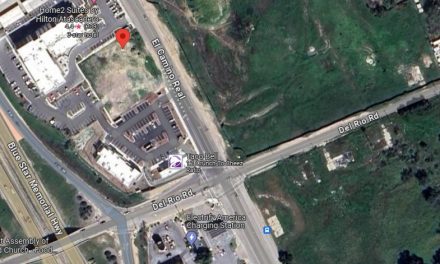City Council approves Prop 218 protest procedure in 4-1 vote as aging wastewater system faces urgent upgrade needs
ATASCADERO — The City of Atascadero has moved forward with the process to approve wastewater rate increases for its residents. The increase was approved with a 4-1 vote at the Tuesday, April 22, City Council meeting. The rate increase follows procedures set by Proposition 218, known as “The Right to Vote on Taxes Act,” which allows property owners a say in some fee increases through a majority protest process.
Atascadero’s wastewater system serves nearly all commercial and industrial properties and a portion of residential areas, primarily within the city’s urban core. Of the city’s 15,000 acres, about 2,000 are connected to the sewer system, encompassing approximately 5,500 parcels. The remaining properties rely on private septic systems. The city took over the wastewater system from the Atascadero County Sanitation District in 1982, shortly after its incorporation in 1979. Although upgrades and improvements have been made over the years, the treatment system — based on stabilization ponds — remains largely unchanged and is now outdated under California’s strict environmental regulations.
The city charges fixed sewer service fees to customers connected to its sanitary sewer system, as it lacks access to individual water usage data. Unlike utilities that base sewer rates on winter water consumption, Atascadero uses a flat rate model based on Equivalent Dwelling Units (EDUs). One EDU represents the average wastewater flow and strength of a single-family residence (SFR), estimated at 240 gallons per day. Other property types are charged proportionally, depending on their wastewater volume and strength compared to an SFR — for instance, apartments are 0.75 EDUs, while small restaurants are 4 EDUs due to stronger wastewater content like chemicals and cleaners.
Currently, there are about 8,300 EDUs in the system. Charges are collected annually via property tax bills through San Luis Obispo County, with payments transferred to the city twice yearly. The current rate is $48.15 per EDU monthly, implemented in July 2023 as part of a five-year rate plan. Prior to this, rates had not increased since 1994. The longfreeze on rate hikes kept costs low but led to underinvestment in the wastewater system. Now, the city faces the need for significant upgrades due to system aging and expanding infrastructure demands, especially as the community grows or densifies.
Residents, business owners, and property owners came out to speak mostly against the rate increase. Business owners said they are already struggling due to the construction from the El Camino Real (ECR) project and asked that the increase be delayed or reconsidered.
City Manager Jim Lewis informed council that while they could choose to delay the rate increase, kicking the can down the road will only lead to higher costs later on.
“That doesn’t address the financial issue on the backend. It will be a more severe increase later,” said Lewis. “You have to build a new wastewater plan. You must meet these regulatory issues.”
Councilman Seth Peek could not get behind approving the rate increase Tuesday night, rather wanting to look for another solution. “As a representative of this business community, I’m not 100% on this,” he said. “I just don’t know if its something I’ll never get behind or its something I’m just not behind today … it’s a tough pill to swallow.”
While Mayor Charles Bourbeau agreed that none of them are 100% behind the increase, it is something that has to be done to avoid being set back further in the future.
With a 4-1 vote, Peek dissenting, council approved staff to move forward with the Prop 218 majority protest process and send out notices of the proposed sewer service rate increases to all property owners connected to the municipal sanitary sewer system. A public hearing was scheduled for the Tuesday, June 10, City Council meeting for the council’sconsideration of the proposed sewer service rate increases.
The next Atascadero City Council meeting is scheduled for Tuesday, May 13, at 6 p.m.














